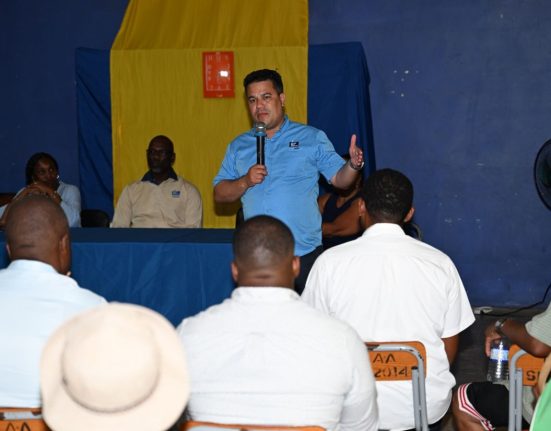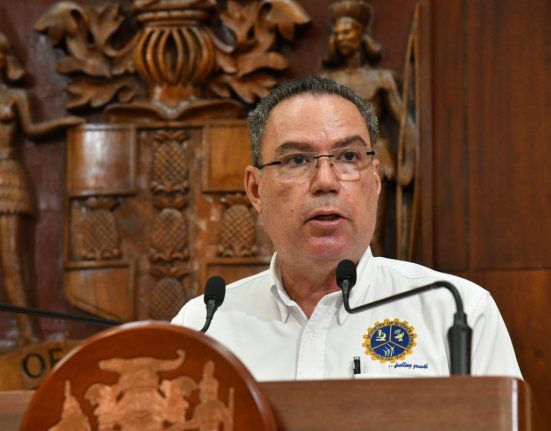
Minister of Agriculture, Fisheries and Mining, Floyd Green, says partnerships are key to addressing current issues and creating a sustainable agricultural future for the Caribbean.
“How can we ensure that more of our small, older farmers have access to the water they need to move their agriculture enterprise forward? How can we ensure that they’re planning with the new climate change realities at the forefront? Do they have access to resources to do things like climate smart agriculture, protected agriculture? How are we utilising our partnerships to change the reality of the farmer in Guyana, Grenada, Bahamas, St. Vincent, Jamaica and the entire region?,” he asked.
Green was delivering the main address at the opening ceremony of the High-level Ministerial Meeting for Caribbean Ministers of Agriculture and the Food and Agriculture Organization (FAO) of the United Nations, held at AC Hotel by Marriott in Kingston, on Monday (September 18).
Green said he looks forward to leaving the High-level Ministerial Meeting with a credible plan, “that will give us some timelines and will point us in the direction of funds that we will mobilise to start the implementation”.
He reasoned that the meeting comes at a “great time”, as Jamaica has just been elected Chair of the Western Central Atlantic Fishery Commission (WECAFC).
“We will now lead, in relation to our fisheries sector, for the next two years. So, it is a great time for us to align our priorities to ensure that the region is truly maximising our potential and, ultimately, that our farmers and fishers are seeing through our actions here today, a better life,” Green said.
FAO Assistant Director General, Mario Lubetkin, shared that the organisation is committed to improving food security and nutrition in Caribbean countries.
He noted that technical cooperation projects have been developed to support the national chapter of the Community of Latin American and Caribbean States (CELAC) 2030 Food Security and Nutrition Plan.
“I would like to draw attention to the CARICOM 25 by 2025 Initiative. It is commendable how much effort has been put into achieving a 25 per cent reduction in extraregional food imports by 2025, with high-level political support,” he said.
Further, Lubetkin noted that FAO has put significant effort into helping countries access climate financing.
Over the past four years, FAO assisted in the approval of approximately 10 Global Environment Facility projects and 10 Green Climate Fund projects.
For his part, Minister of State in the Ministry of Agriculture, Fisheries and Mining, Franklin Witter, said that agriculture is a major economic pillar of the Caribbean.
“Tourism, another major pillar, depends heavily on agriculture to thrive. Unfortunately, the Caribbean region has several challenges that impact the sector. One significant challenge is the availability of water and the requisite irrigation infrastructure, which is increasingly exacerbated by the issue of climate change,” Witter said.
He added that it is imperative for the region to collaborate, so that together the Caribbean can agree on solutions to address common challenges.
– JIS News





